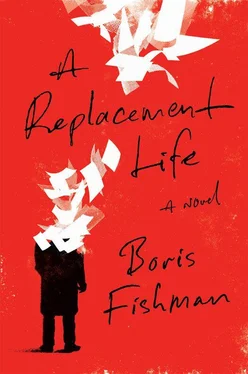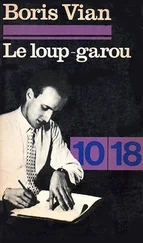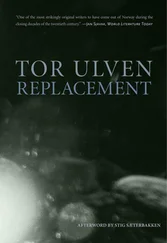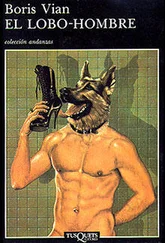“Lonely,” the nurse smiled. “Old and lonely. We see it all the time. Seventy, seventy-five, family far away. The insurance company should come up with a code. Let me go, honey, I actually need to give him a new IV.”
Slava returned to the room. The sun shone luminously through the wide window. It seemed especially outlandish to be ill during such weather. One of Israel’s eyes popped open, like a diver emerging from the deep.
“Oh, shit,” he said, and snapped it closed. He opened it again. “Where did you come from?” He coughed.
“Are you sick, or are you not really sick?” Slava said.
“Me? I’m fucking tired,” Israel said, and closed his eyes again. Then he opened them.
“Hollywood’s crying after my grandfather?” Slava said.
“Did they say anything about—” Israel started.
“Yuri? He’s coming,” Slava said. He had no knowledge of this, but Israel didn’t need to know that.
“Might as well be the Messiah himself,” Israel sighed.
“Nice play,” Slava said.
Israel looked up at Slava. “I am at your mercy,” he said.
“Don’t worry, your secret’s safe.”
“I’m sorry, Slava,” Israel said. A tear rolled out of his eye, then stopped in place, as if, like its owner, it was too tired to go on. “Yes, I envy your grandfather, but not because he has a twenty-four-hour home nurse. Because you’re one borough away.”
“So you will go with Yuri to Israel,” Slava said.
“If he takes me,” Israel said. “I’ll die in the Jewish homeland. That’s not so bad.”
“Where would you prefer to die?” Slava said.
“In Minsk. I don’t want English on my headstone and I don’t want Hebrew on my headstone. In Russian: ‘Iosif Abramson. Date of birth, date of death. The tea was bitter and he blamed existence.’” He broke into hoarse laughter.
“You’re tempting fate, Israel.”
“I’ve had enough,” Israel said. “Just let me look at my son one more time. He’s coming, isn’t he?”
“I’m sure he is.” Slava took the old man’s hand, dry and crabby. “You don’t have to go, you know. I’ll come for soup.”
“You already have a grandfather,” Israel said.
Slava took the old hand with both of his. They looked through the windows at the lunatic sunshine. “Will you do what I say?” he said to the old man.
Israel cocked an eyebrow. “Like how?”
“Just do what I say right now. Get up and get dressed.”
“I don’t understand.”
“‘We’re following you now, Gogol’—who said that? That’s the problem with all of you: You don’t mean what you say. You use the big words, but they’re worth a turd. Come on.”
“But my son is supposed to come.”
“You think Israel is two hours away? We’ll be back well before.”
“Where are you taking me?”
“You’re trusting me.”
“What if the nurse finds out?”
“So when it’s your own hide, you cry. Show me you have balls, Israel. Show me you don’t hide behind the young ones with your big words.”
While Israel pissed, Slava made a phone call. “Come back?” Vova said on the other end. “I can be there in ten minutes.” Vova was always ten minutes away. But Slava needed him to switch cars. “Are you serious?” Vova said. That was going to be extra. “I know, just do it,” Slava said impatiently. “You didn’t reconsider our arrangement, did you?” Vova said. “It could be fifteen percent if you want.”
After Israel was done, Slava heaved him back onto the bed. The old man was faking his unraveling, but he was no colt. In Slava’s hands, Israel surrendered, shy when Slava removed his blue gown. These old men had fucked their way through Minsk, two million people, but they remained modest as children.
Israel was left in a pair of checked boxers, the white belly that had seemed so estimable while hidden settling meagerly over the band of the underwear. The belly skin was as soft as a newborn’s. While Slava retrieved Israel’s clothes from the locker, the old man crossed his feet like a boy and peered with perplexity at the squares of his toenails.
First Slava pulled on the trousers, leg by leg, Israel playing inept. Then an undershirt, Israel’s arms like slabs of pale, old salmon struggling to come through the openings. A short-sleeved summer shirt followed, then a pair of white socks and white sneakers.
“There you are,” Slava said, surveying his work. “Ready for the first day of school. Come on.”
They peered out of the doorway like two burglars. Only one nurse at the nurse station. “Wait for me,” Slava said. He walked up to the nurse and started asking about the prayer room, located on the side of the hallway facing away from the path Israel needed for the elevator. When the nurse, Slava giving her his best smile, looked that way, Slava waved his hand behind his back and Israel waddled toward the elevators around the corner from the nurses’ station. When Slava joined him there a moment later, Israel stuck out his thumbs. “Not bad,” he said. “Where are you taking me?”
You had to give Vova credit. Ten minutes, like he said, plus five to switch his sedan to a limo. He even found a livery cap somewhere, the actor. “What the fuck is this?” Israel stopped in his place, sighting the vehicle — black, sleek, pouncing, beautiful.
“You said you wanted to see Manhattan,” Slava said. “If you’re moving to Israel, this is your chance.”
While Slava wedged Israel into the backseat, Vova ran down the block to the liquor store (flowers, bakeries, liquor — these establishments filled out the block where Maimonides was located, proving that certain claims about the efficiencies of the American market were not overstated), coming back with an Asti Spumante that a true Soviet citizen preferred to better champagne.
They saw it all, Slava seeing most of it for the first time himself, though thanks to Arianna, now he could imagine how one led to the other. The Statue of Liberty, the Chrysler Building, the Empire State Building, Times Square, Rockefeller Center, St. Patrick’s Cathedral, Central Park. At stoplights, Slava made Israel raise his head through the sunroof. Around them, Fifth Avenue anthilled in oblivion, sublime and grotesque. “The women!” the old man shouted. “Look at the women!” Slava raised the bottle of Asti Spumante, and he and Israel drank to the women of Fifth Avenue, the tourists stopping to snap pictures of them peering out the sunroof, though the natives continued to march on, officially untouched.
They went as far north as Riverside Park, Slava asking Vova to swing by the statue of the American president Ulysses S. Grant. Slava told the old man all about the American president. Israel listened like a schoolboy. “I want to get out,” he said. “I want to feel it under my feet.”
While Vova idled, they strode arm in arm onto the grass of Riverside Park, the bottle of champagne in Slava’s hands. They sat down on a bench and swigged from it like two homeless men.
“So, this is it,” Israel said.
“This is it,” Slava said.
“It’s leafy.”
“Like spinach.”
They hollered like children.
“This is what you spent the two-fifty on, isn’t it?” Israel said.
“Russian limos cost less than American limos. There’s plenty left over.”
Their shouting and vagrancy attracted the squint of a patrolman from the pavement on the other side of the grass. Open consumption of alcohol invited more law-enforcement attention than freelance climbers of municipal property. Slava tossed the empty bottle of Spumante into the bushes and they made legs back to the car.
The desk nurse rose in flames when she sighted the pair, still laughing, emerging from the elevators on the third floor of Maimonides. She began to shout, wresting Israel from Slava’s hold. Israel patted the arm emerging from her uniform. “Nice,” he said in English. “Beautiful lady.” He and the false grandson laughed again, though Slava let go. The nurse walked Israel back to 317, Slava following. “I should have you barred,” she hissed at the young man as she settled Israel in the bed. “I just need another minute,” Slava said. “If something happens to him, we’re no longer responsible,” she said angrily, walking out. “It’s happened already,” Slava said after her.
Читать дальше











